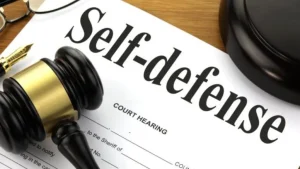
A self-defence situation can unfold in seconds, yet the consequences can follow you for years. Even when you genuinely acted to protect yourself or someone else, the moments immediately after the incident are critical. What you do, say, or fail to do can influence how law enforcement interprets the event and how any future legal case unfolds. Understanding the correct steps helps protect your rights and gives you a defence attorney the strongest foundation to represent you. If you ever need legal support, contacting a self defence attorney Reading PA professional as early as possible is one of the smartest decisions you can make.
Ensure Safety First and Move Away from Danger
The first priority after any self-defence incident is safety. If the threat is still present, move to a secure area. Your physical safety and the safety of others should always come before anything else. Once you are sure the immediate danger has passed, avoid engaging in any unnecessary confrontation. Do not attempt to pursue or restrain anyone unless absolutely necessary for safety. Staying calm and composed helps set the tone for what comes next.
Call Emergency Services Without Delay
Even if you believe the situation appears minor, always contact emergency services. Calling the cops makes a formal record of what happened. It also shows that you are not hiding anything and are acting responsibly. When speaking to the dispatcher, keep your words simple and factual. Identify yourself, state that you were involved in a self-defence situation, and request both police and medical assistance if anyone is injured. Avoid adding extra commentary that could be misinterpreted later.
Request Medical Evaluation Even if You Feel Fine
Adrenaline can mask injuries. Many people in self-defence situations do not realise they are hurt until much later. Requesting medical assistance ensures your injuries are documented immediately, which can play an important role in supporting your version of events. Medical reports can show that you were attacked or placed in imminent danger. These details strengthen the factual foundation of your self-defence claim.
Avoid Talking About the Incident Until You Have Legal Counsel
One of the biggest mistakes individuals make is discussing the event too openly. You may feel the need to explain what happened, but saying too much too soon can create problems. Limit your statements to basic information. Tell law enforcement that you will fully cooperate but wish to speak with your attorney before giving a detailed account. This is a lawful and reasonable request. Anything you say can be used later, so it is essential to protect yourself from unintended misstatements.
Preserve Any Evidence That Supports Your Actions
Evidence can disappear quickly. If it is safe to do so, take note of important details. This may include physical marks, property damage, positions of objects, or security cameras that may have recorded the incident. Avoid touching or moving anything unnecessarily. If there are witnesses, gather their contact information, but do not ask them to recount the event. Simply ensure their details are available for your attorney to follow up later.
Stay Calm When Police Arrive and Follow Instructions
When officers arrive, keep your hands visible and follow their commands. They are assessing the situation and ensuring that everyone is safe. Avoid arguing or becoming defensive. Simply inform them that you were the victim and acted in self-defence. Reiterate that you will be happy to provide a full statement after speaking with your attorney. Remaining respectful and composed can help minimise misunderstandings.
Contact a Self-Defence Attorney as Soon as Possible
Self-defence cases require careful handling. Even when you acted lawfully, you may still face charges or investigations. Contacting a self-defense attorney in Reading, PA, gives you immediate protection and guidance. An experienced attorney will review the incident, advise you on what to say, and begin preparing the evidence needed to support your defence.
Final Thoughts
A self-defence situation is emotionally overwhelming, but the actions you take afterward matter deeply. By ensuring your safety, calling emergency services, avoiding unnecessary statements, preserving evidence, and seeking legal help promptly, you protect your rights and strengthen your defence. Doing the right thing and getting professional legal help can make a big difference in how your case turns out.






